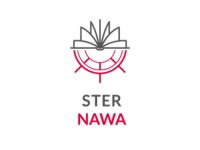Zaproszenie na kurs online Prof. Gil Baptista Ferrerira dla dyscypliny Nauki o komunikacji społecznej i mediach
10 grudnia 2024 Marzena Chlewicka

Szkoła Doktorska UJK – Sekcja Nauk Społecznych zaprasza na kurs online Prof. Gil Baptista Ferrerira Media Theories in the Digital Age dla dyscypliny Nauki o komunikacji społecznej i mediach w ramach Projektu NAWA STER
The Doctoral School at UJK – Social Sciences Section invites you to the online course Media Theories in the Digital Age by Prof. Gil Baptista Ferreira for the discipline of Social Communication and Media Studies within the NAWA STER Project.
Terminy/Dates:
- 16 grudnia 2024 r. – 2 sesje/2 sessions (5 h)
- 18 grudnia 2024 r. – 2 sesje/2 sessions (5 h)
Platforma/Platform: Zoom
Dostęp do spotkania/Access to the meeting:
- 16TH DECEMBER 2024 – 1 ST SESSION
SUBJECT: Media Theories in the Digital Age – Theory in Social Media
DATE AND TIME: 16 gru 2024 10:30 AM Warszawa
ID MEETING: 989 2794 1438
- 16TH DECEMBER 2024 – 2ND SESSION
SUBJECT: Media Theories in the Digital Age -: Uses and Gratifications Theory in the Digital Era
DATE AND TIME: 16 gru 2024 13:30 PM Warszawa
ID MEETING: 981 6956 4994
- 18TH DECEMBER 2024 – 1ST SESSION
SUBJECT: Media Theories in the Digital Age – Framing in Social Media
DATE AND TIME: 18 gru 2024 10:30 AM Warszawa
ID MEETING: 973 9967 6143
- 18 TH DECEMBER – 2ND SESSION
Subject: Media Theories in the Digital Age – Media Theories in the Digital Age
Date and Time: 18 gru 2024 13:30 PM Warszawa
ID MEETING: 976 8468 5265

Program:
Program: Media Theories in the Digital Age
| Session | Content | Time |
| Session 1: Agenda-Setting Theory in Social Media | Introduction to agenda-setting: from traditional to decentralized digital platforms. Role of influencers, social movements, and users in shaping agendas. Algorithmic personalization and filter bubbles: opportunities and risks. Speed and ephemerality of topics in social media. Public participation as co-creators of narratives and mobilization through hashtags. Interaction between social and traditional media: bidirectional influence and challenges. |
16 December, 10.30 (Warsaw Time) |
| Session 2: Uses and Gratifications Theory in the Digital Era | Core concepts: active audiences, needs, and gratifications. Categories of media needs: information, entertainment, social interaction, identity, and escapism. The role of digital platforms in expanding audience participation (prosumers). Social impacts: mental health, polarization, and interaction quality. Critiques of UGT: algorithmic influence and contextual limitations. Case studies: comparative analysis of TikTok and Twitter. |
16 December, 13.30 (Warsaw Time) |
| Session 3: Framing in Social Media | Introduction to framing theory: narrative construction and symbolic tools. Content analysis: emotional tone, imagery, and recurring themes in online narratives. User interaction and co-construction of meaning: the role of emotions and virality. Power dynamics: influence of algorithms, influencers, and communities. Ethical challenges: polarization and the responsibility of platforms and users. Comparing framing in social and traditional media. |
18 December, 10.30 (Warsaw Time) |
| Session 4: Spiral of Silence Theory and Its Contemporary Application | Foundations of the theory: fear of isolation and silencing of minority opinions. The role of media in amplifying dominant views and creating 'false consensus.’ Spiral of silence in social media: algorithms, polarization, and public conformity. Societal implications: political polarization and marginalized voices in social movements. Challenges and critiques: counter-publics and variability across cultures. Toward a pluralistic media environment: literacy, algorithmic fairness, and inclusive debates. |
18 December, 13.30 (Warsaw Time) |



